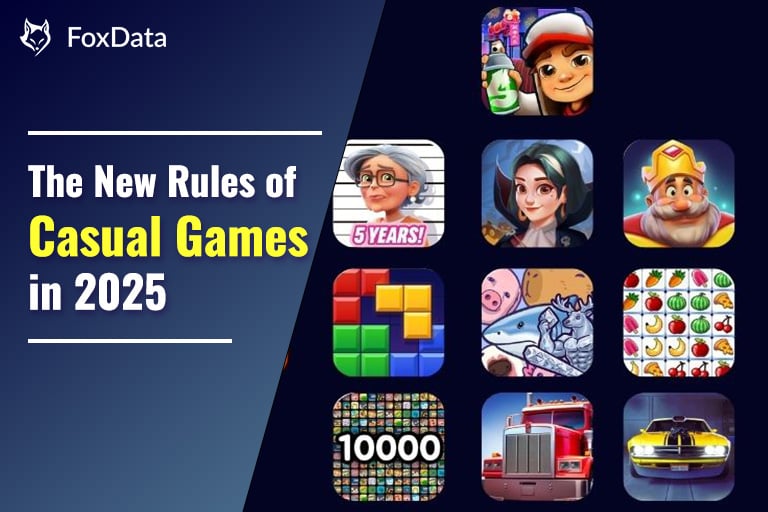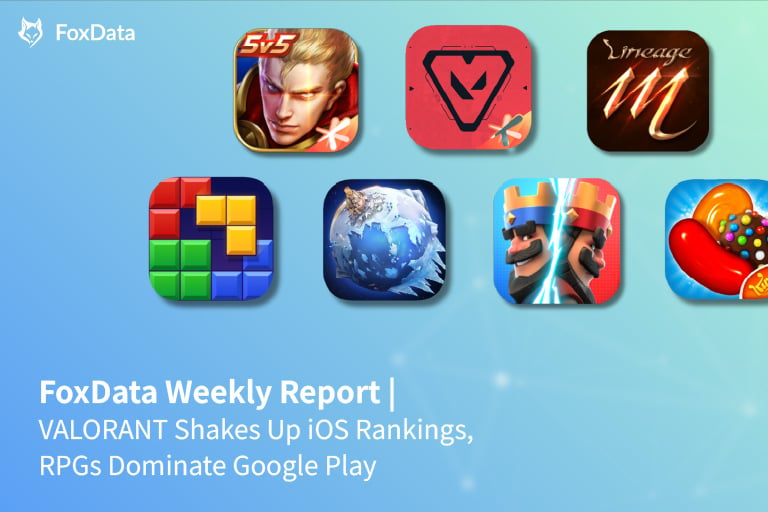Why Are Simulator Games So Popular? It’s Not About Realism, It’s About Relatability

Recently, a new mobile title called Prison Escape Simulator 3D made its debut in the global market and quickly went viral in Turkey. Its popularity soon spread across the Middle East, before expanding further to Indonesia, Spain, and Germany. Within just one week, the game had broken into the top 10 free simulation charts in multiple countries—ultimately reaching the No.1 spot in Turkey.
“Prison Escape Simulator 3D” Climbs to the Top of Turkey’s Free-to-Play Charts
As its name suggests, the title puts players in the role of a prisoner, experiencing daily prison life while secretly gathering resources, digging a tunnel, and ultimately planning an escape. While the premise may sound dramatic, the actual gameplay is far less thrilling than what’s often portrayed in films or action titles. Instead, it unfolds as a slow, routine process of carving out a way to freedom amidst ordinary prison activities. This approach—transforming overlooked or unconventional roles into immersive virtual experiences—has become one of the defining characteristics of simulator games.
Image Source: FoxData – App Profile
The Growth Path of Simulator Games
The simulator genre first emerged on PC, though its precise origins are difficult to trace. What is clear, however, is that several classics continue to resonate with players to this day. Examples include Hobo: Tough Life, a street survival simulator; Papers, Please, centered on border inspection and immigration control; and Internet Cafe Simulator, which replicates the experience of running a cybercafé. These titles have maintained a lasting influence across different player communities, with many gamers even regarding them as a kind of “second life” within the virtual world.
“Papers, Please” — Source: FoxData, App Profile
From a gameplay perspective, simulator titles focus on replicating the details of everyday life rather than relying on complex mechanics or strategy-heavy systems. Their controls are usually simple and intuitive, minimizing cognitive load and making “effortless, pick-up-and-play” a defining label for the genre. In recent years, this design approach has rapidly gained traction on mobile platforms.
Looking at the past two years, several breakout examples stand out: Indonesia’s viral hit Ojol the Game, a motorcycle taxi simulator; Supermercado Simulador 3D, which spread from Latin America to the Middle East as a supermarket management game; and I Am Cat, a feline role simulator that captured Western markets. All of them succeed by leveraging a hypnotic loop of “step into a new identity, repeat simple daily routines,” a formula that strongly resonates with players.
Similarly, earlier products such as Outlets Rush and My Perfect Hotel, together with newer entrants like I Am Security and I Am Cat, continue to hold steady user activity levels. Trend data from FoxData reinforces the consistent vitality of this subgenre. Meanwhile, KRAFTON’s upcoming project inZOl—dubbed informally as a “Chaebol Simulator”—further underscores publishers’ growing confidence in the future of simulation-based experiences.
FoxData’s user activity analysis shows that all four of these simulator titles maintain over 500,000 monthly active users (MAU).
Why Are Simulation Games Thriving?
The core appeal of simulator games lies in immersion and stress relief. On one hand, they allow players to “live another life” at minimal cost; on the other, the gradual process of building and accumulating provides a strong sense of achievement—transforming “nothing into something.” Both factors help reduce real-world stress.
This substitute experience is particularly attractive in regions such as Southeast Asia, the Middle East, and Latin America, where daily life is often fast-paced and pressures are high. For many users in these markets, simulator games serve as quick, accessible tools for anxiety relief and emotional escape.
FoxData – Estimated Downloads
The success of simulator games is also closely tied to their choice of themes. Most of them center on “ordinary characters with recognizable identities.” Whether it’s a cashier, an internet café owner, a security guard, or even a beggar or prisoner, the lower the social status, the more relatable the role becomes. Combined with simple controls and clear objectives, players are motivated to keep repeating mundane tasks while steadily accumulating achievements—keeping them engaged in the loop.
At the same time, increasing player freedom further extends the fun. Many simulators do not enforce a strict main storyline but instead allow players to make autonomous choices. For example, players may completely ignore their “day job” to explore the map, decorate their home, or—like in Papers, Please—take on the role of an immigration officer who independently decides whether to follow regulations, accept a bribe, let someone pass, or even betray them. This lack of constraints not only strengthens the stress-relief element but also enhances the entertainment factor.
Such freedom and unpredictability also make simulators ideally suited for content creation and live streaming. Streamers often generate comedic moments through unconventional gameplay—for instance, deliberately wasting resources or trolling NPCs. These “alternative plays” create viral clips, amplifying exposure for both the games and the creators.
Where Are Simulators Heading Next?
In the coming years, simulators are expected to fragment into even more niches. With lower development barriers, small teams can quickly launch new titles covering a wide range of professions and experiences. Meanwhile, AI and VR/AR technologies will drive greater realism and immersion. NPCs may no longer rely on scripted behavior but instead dynamically react to player actions and environmental changes.
On the content side, themes will likely “go even lower”—focusing on marginalized roles such as cats, prisoners, or other unconventional identities. Because these characters carry fewer moral expectations, players naturally feel less psychological burden when engaging in mischief or destructive actions, amplifying the stress-relief effect.
Multiplayer features are also increasingly being integrated. Titles like I Am Cat and Hobo Simulator have already experimented with online co-op or chaos modes, allowing players to collaborate or mess with each other—significantly boosting fun and community engagement.
That said, the genre also faces challenges. First is homogenization risk—when countless products all promise “living another life,” innovation in theme and mechanics becomes critical. Second is the matter of authenticity balance—too shallow feels boring, but too serious undermines the casual appeal. Third is cross-platform difficulty—mobile audiences prefer short, frictionless sessions, while PC players expect detailed, hardcore realism. Bridging these expectations makes full cross-platform integration a challenge.
Conclusion
The rise of simulator games ultimately stems from their three key attributes: simplicity, realism, and stress relief. By translating ordinary jobs, marginalized identities, and even animal life into virtual experiences—with high freedom and little moral constraint—simulators tap directly into players’ desire for relaxation and emotional escape.
With advances in AI, VR, and multiplayer systems, simulators are poised to become one of the most promising casual gaming genres in the years ahead. From Supermarket Manager to I Am Cat and now Prison Escape Simulator 3D, the continued expansion toward more down-to-earth, unconventional roles may secure the simulator genre as one of the richest long-term content mines in the global mobile games market.
Still guessing what users really want? Let FoxData handle it.
We help you spot the next hit—whether it’s global market trends, player behavior, or niche opportunities, everything you need is just one report away.
👉 Try now, and let data save you countless trial-and-error costs.
🎯 With FoxData, you can:
- Analyze the download and revenue composition of each app across different countries and regions, and pinpoint market opportunities.
- Compare competitors’ subscription and in-app purchase (IAP) conversion rates to refine your monetization strategy.
- Dynamically track how version updates influence daily revenue curves, and capture shifts before they escalate.
- Uncover detailed user retention and churn patterns, helping you optimize product lifecycle decisions.
📥 Curious about when and why your competitors’ revenue suddenly spiked?
👉 FoxData has already prepared the data charts and insights for you.






